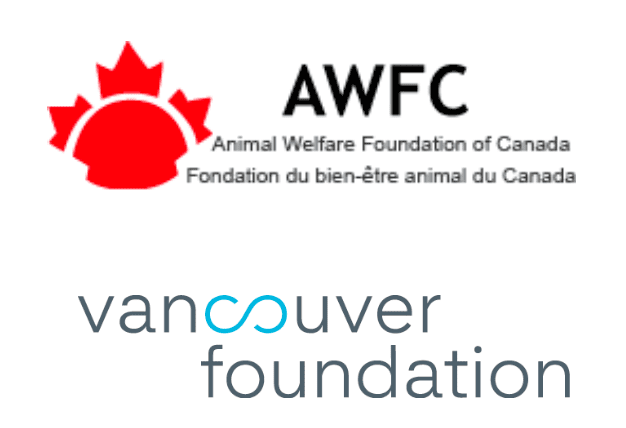Improve well-being, reduce burnout
Learn to implement a trauma-informed approach at your organization or practice! These free, complementary courses aim to help animal service workers and organization leaders learn how to implement trauma-informed and culturally safe approaches in their work, and how to mitigate the effects of burnout and compassion fatigue that are incredibly common in the animal protection sector.
The goal of this training program is simple—to create safer, happier outcomes for animals, their guardians, and animal protection workers.
The training is:
When you enter your contact information below to learn more, you’ll receive a free PDF resource about simple steps you can take toward a trauma-informed approach today.
College of Veterinarians of British Columbia: The CVBC has approved the online courses for 1 hour of CE credit per session for BC veterinarians.
British Columbia Veterinary Technologists Association: The VHS’s online courses are approved for continuing education credit through the BCVTA, with each course counting toward 2 hours of credit.
P.E.A.C.E.: This program is offered as a training opportunity available to nonprofits, charities, and farm sanctuaries.
Course options
Implementing a Culturally Safe & Trauma-Informed Approach
This course is intended for anyone looking to learn more about how to implement trauma-informed and culturally safe approaches in their work.
Trauma-Informed & Culturally Safe Leadership
This course will be particularly useful for leaders who work in the animal services sector who wish to learn more about how to create a trauma-informed, culturally safe work environment and programs.
Caring For Yourself & Others: Preventing Compassion Fatigue & Burnout
This course is intended for those working in the animal services sector who wish to learn more about how to address and prevent compassion fatigue and burnout in themselves and others.
Each course is about two hours long. They can be taken in conjunction or separately.
The report that this training is based on was made possible by funding from the Government of British Columbia’s Ministry of Agriculture through their Canadian Agricultural Partnership initiative. We thank them for their support of this project. The views expressed in this report do not reflect the views of the funders.

We would also like to thank the Animal Welfare Foundation of Canada and the Vancouver Foundation for supporting this project as a whole.

